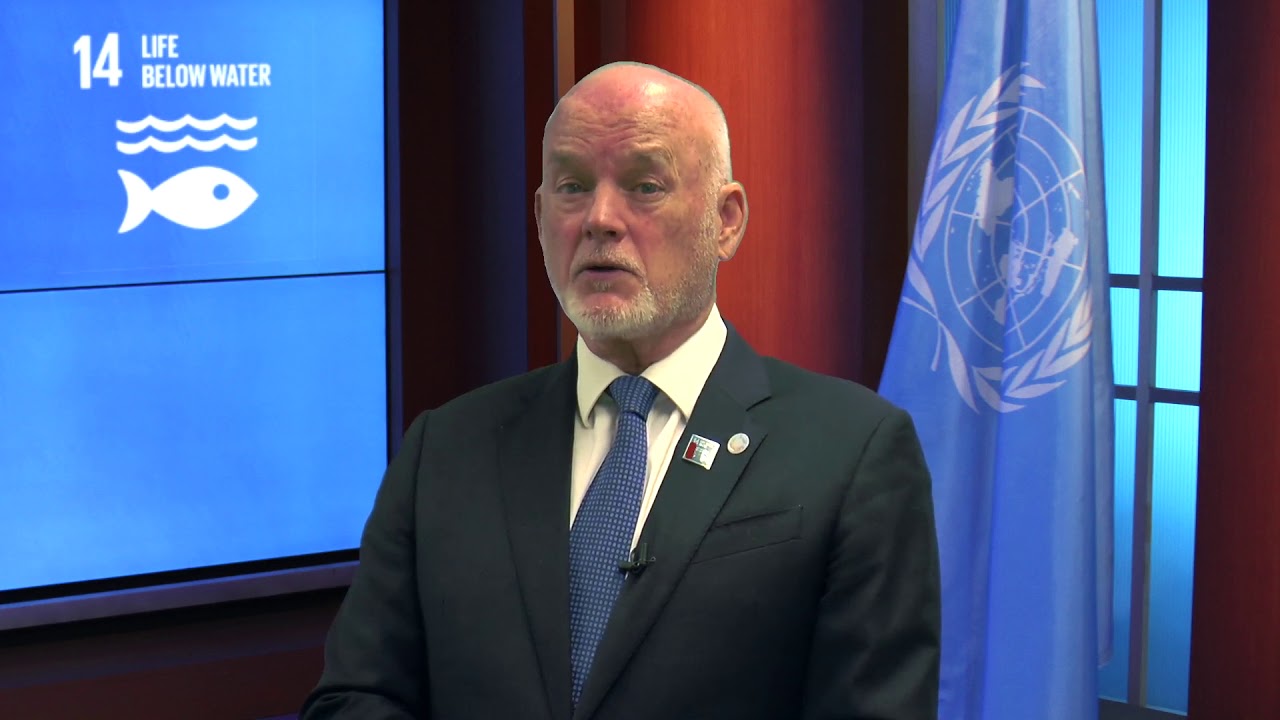Despite environmental challenges, the UN Secretary-General’s Special Envoy for the Ocean Peter Thomson believes there are viable solutions to reverse the decline in ocean health.
The 2022 UN Ocean Conference which will take place from 25 June to 1 July, in Lisbon, Portugal will provide a critical opportunity to mobilise partnerships and increase investment in science-driven approaches. It will also be the time for governments, industries, and civil society to join forces and take action.
With 100 days to go until the event, UN News spoke with Thomson about the event, and the current state of our oceans.
The first UN Ocean Conference came into existence in 2017, mandated by the UN General Assembly. The second UN Ocean Conference in Lisbon this year, is the ‘process that keeps SDG 14 honest. And that honesty, of course, is extremely important because, as the mantra goes, ‘there is no healthy planet without a healthy ocean,’ he said.
Climate worries
When asked on the advancement in ocean conservation since the last Ocean Conference, Thomson says it is “definitely not enough.” He said in 2022, only 8% of the world’s ocean is covered in Marine Protected Areas (MPAs) compared to the 10% target set in 2020. “We need to do a lot more work on this because MPAs are an essential part of saving the health of the ocean.”
He finds the latest IPCC report alarming. “You’ll find small island developing States, Fiji amongst them, are at the forefront of the battle to transform our consumption and production patterns so that we don’t go to that much warmer world… ‘1.5 to stay alive’, as the saying goes. That’s still our ambition”, he stressed.
Due to Climate Change, Thomson believes the health of the ocean is “diminishing every day.” It’s a matter of survival, not just for our grandchildren, but also for our cultures that have existed for thousands of years in those locations… they won’t be eating big fish, for example. They will still be eating fish, but there’ll be small fish which are grown in sustainable aquaculture conditions… we have to invest in the transformations, and we have to start doing that now, he said.
The way forward
SDG14 (to conserve and sustainably manage the resources of the ocean) is “very doable”, says Thomson. Targets like SDG 14.6 : ridding the world of harmful fisheries subsidies that lead to overfishing, and lead to illegal fishing and so on, that is a very doable act, and the time to do it is at the World Trade Organization Ministerial conference in June this year, he said.
Also on marine pollution, which is SDG Target 14.1, he says 80% of that pollution is plastics. “By getting this international binding treaty (to ban and control plastic pollution) in place, we’re going to hit that target, no problem.” As individuals, Thomson says “we can just adopt better behaviour as human beings in terms of pollution. Look at your plastic use and say, do I really need all this plastic in my life? Individuals have to make the right choices that make this world a sustainable place.”
He calls on people to know what transpired from the COP26 UN climate conference last year and to anticipate the next conference, COP27 in Sharm el-Sheikh, Egypt this November.
“As we come out of this COVID-19 pandemic, are we going to just go back to what we were doing before? Or are we going to try and eat more sustainably, travel more sustainably, shop more sustainably. Has the pandemic taught us a lesson? Hopefully it has. And we’ll be building back not just better, but we’ll be building back greener and bluer,” he said.
Thomson is confident that the conference in Lisbon this June is “going to be about providing the solutions to the problems that the [UN] alerted the world to.” And, he is very confident that those solutions will emerge when they’ll get there.
